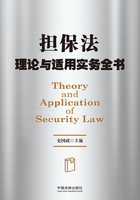And if a man kills a freeman unintentionally, he shall undergo thesame purification as he did who killed the slave. But let him notforget also a tale of olden time, which is to this effect:-He whohas suffered a violent end, when newly dead, if he has had the soul ofa freeman in life, is angry with the author of his death; and beinghimself full of fear and panic by reason of his violent end, when hesees his murderer walking about in his own accustomed haunts, he isstricken with terror and becomes disordered, and this disorder of his,aided by the guilty recollection of is communicated by him withoverwhelming force to the murderer and his deeds. Wherefore also themurderer must go out of the way of his victim for the entire period ofa year, and not himself be found in any spot which was familiar to himthroughout the country. And if the dead man be a stranger, thehomicide shall be kept from the country of the stranger during alike period. If any one voluntarily obeys this law, the next of kin tothe deceased, seeing all that has happened, shall take pity on him,and make peace with him, and show him all gentleness. But if any oneis disobedient, either ventures to go to any of the temples andsacrifice unpurified, or will not continue in exile during theappointed time, the next of kin to the deceased shall proceedagainst him for murder; and if he be convicted, every part of hispunishment shall be doubled.
And if the next of kin do not proceed against the perpetrator of thecrime, then the pollution shall be deemed to fall upon his ownhead;-the murdered man will fix the guilt upon his kinsman, and he whohas a mind to proceed against him may compel him to be absent from hiscountry during five years, according to law. If a strangerunintentionally kill a stranger who is dwelling in the city, he wholikes shall prosecute the cause according to the same rules. If hebe a metic, let him be absent for a year, or if he be an entirestranger, in addition to the purification, whether he have slain astranger, or a metic, or a citizen, he shall be banished for life fromthe country which is in possession of our laws. And if he returncontrary to law, let the guardians of the law punish him with death;and let them hand over his property, if he have any, to him who isnext of kin to the sufferer. And if he be wrecked, and driven on thecoast against his will, he shall take up his abode on the seashore,wetting his feet in the sea, and watching for an opportunity ofsailing; but if he be brought by land, and is not his own master,let the magistrate whom he first comes across in the city, release himand send him unharmed over the border.
If any one slays a freeman with his own hand and the deed be done inpassion, in the case of such actions we must begin by making adistinction. For a deed is done from passion either when men suddenly,and without intention to kill, cause the death of another by blows andthe like on a momentary impulse, and are sorry for the deedimmediately afterwards; or again, when after having been insulted indeed or word, men pursue revenge, and kill a person intentionally, andare not sorry for the act. And, therefore, we must assume that thesehomicides are of two kinds, both of them arising from passion, whichmay be justly said to be in a mean between the voluntary andinvoluntary; at the same time, they are neither of them anythingmore than a likeness or shadow of either. He who treasures up hisanger, and avenges himself, not immediately and at the moment, butwith insidious design, and after an interval, is like the voluntary;but he who does not treasure up his anger, and takes vengeance onthe instant, and without malice prepense, approaches to theinvoluntary; and yet even he is not altogether involuntary, but onlythe image or shadow of the involuntary; wherefore about homicidescommitted in hot blood, there is a difficulty in determining whetherin legislating we shall reckon them as voluntary or as partlyinvoluntary. The best and truest view is to regard them respectivelyas likenesses only of the voluntary and involuntary, and todistinguish them accordingly as they are done with or withoutpremeditation. And we should make the penalties heavier for thosewho commit homicide with angry premeditation, and lighter for thosewho do not premeditate, but smite upon the instant; for that whichis like a greater evil should be punished more severely, and thatwhich is like a less evil should be punished less severely: this shallbe the rule of our laws.
Cle. Certainly.















